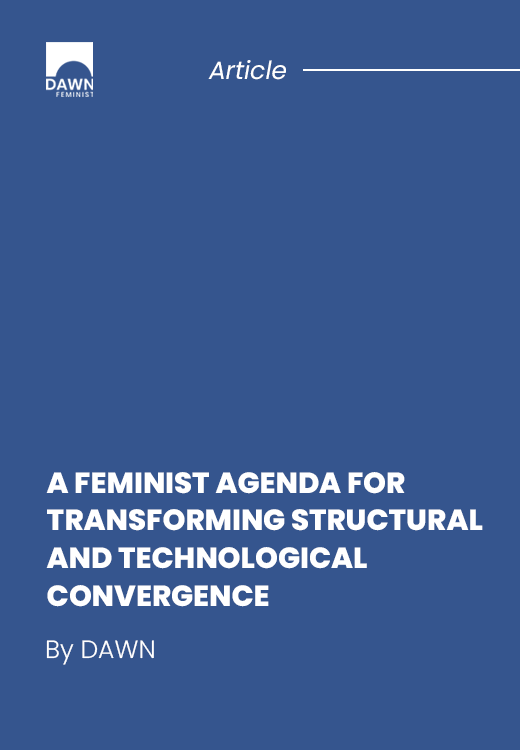A Contribution to a Global CSO Seminar on the threats from BANG (manipulation of Bits, Atoms, Neurons and Genes) Technologies in Montpellier, France from 22-26, November 2008
In January 2008 a small group of feminist activists and researchers from the global North and South met in Uppsala. This group emerged from several conversations among the various participants in several fora including: The What Next? project, the research project Women and the Politics of Place, the journal Development and transnational feminist environment justice interconnections around the World Social Forum. The participants contributed in their individual capacity but all are engaged in diverse feminist, academic and activist networks and organisations and institutions from different parts of the world. The group proposed an initial set of conceptual and policy foci as a way to open up a debate and process that engages many more feminists, environmentalists and social justice activists working on these issues.
The starting point for our discussions was to try to infuse the What Next? process with feminist analyses on political ecology (in relation to economic globalization, environment, new technologies and embodiment). The January discussions in Uppsala mapped out some feminist positions and thematic entry points into a whole spectrum of issues related to political ecology. In particular, the group explored current critical debates in relation to emerging research programs on bio-, geo-, and nano-technologies and their implications for social, economic, environmental, and climate justice.
With today’s urgency around climate change and global warming and its devastating health and livelihood effects borne most severely by the poor in all parts of the world, and with talk now of another ‘green revolution’ and the shortages of clean water and food worldwide, it is critical that feminists start to take seriously alarms raised about many environmental crises and the kinds of crisis-oriented ‘sustainable solutions’ that are being put forward by governments and corporations alike. Feminist analyses need take into account how life science companies are appropriating and manipulating genes for seeds, food and medical purposes without public debate, oversight or consensus. The new biotech research has profound implications for farmers (and fisher people and pastoralists) and for food sovereignty worldwide impacting millions of poor women’s livelihoods. Major agribusiness firms, such as Syngenta, BASF, Bayer and Monsanto are reformulating their pesticides at the nano-scale to make them more biologically active and to win new monopoly patents. It is estimated that over the next two decades, the impacts of nano-scale technology convergence on farmers and food will exceed that of farm mechanisation or of the Green Revolution. The recent spate of local protests and mobilizations swelling into a global movement for food justice is but one very visible and rising manisfestation of social, ecological and economic disjunctures at ground level, created by unfettered and unexamined technological and economic convergences among corporate and state actors at global level…
A newly theorised feminist political ecology framework would pay attention to: the power dynamics between different groups of men and women at different times and places; the political processes by which power is differently articulated in different ‘places’ from the corporeal body to the globe; and the ways that non-human communities and landscapes co-exist with humanity in complex processes of interdependence. Such a framework will also pay attention to the different knowledges and participatory processes that must be recognized and developed to frame and guide the scientific, political and civil society agenda. This feminist critique will take into account the re-emergence of a presumed link between race and genetics, the issue of informed consent in government research protocols, the critique of genetic reductionism, the concern about the rise of a new eugenics, and the misgivings related to racial/genetic stigmatization and discrimination. Such a framework will identify the many existing, viable alternatives to neoliberalism’s technologies and sciences, and it will advocate for technoscientific research and development in support of genuinely sustainable and just solutions to social and environmental problems worldwide. It would help make visible the environmentalisms of everyday life that can be seen in many community-based struggles and movements occurring around the world. We aim for nothing less than to build alternative ecologies and economies that protect the rights of people and the health of our planet.
Click DOWNLOAD to read the full article.

